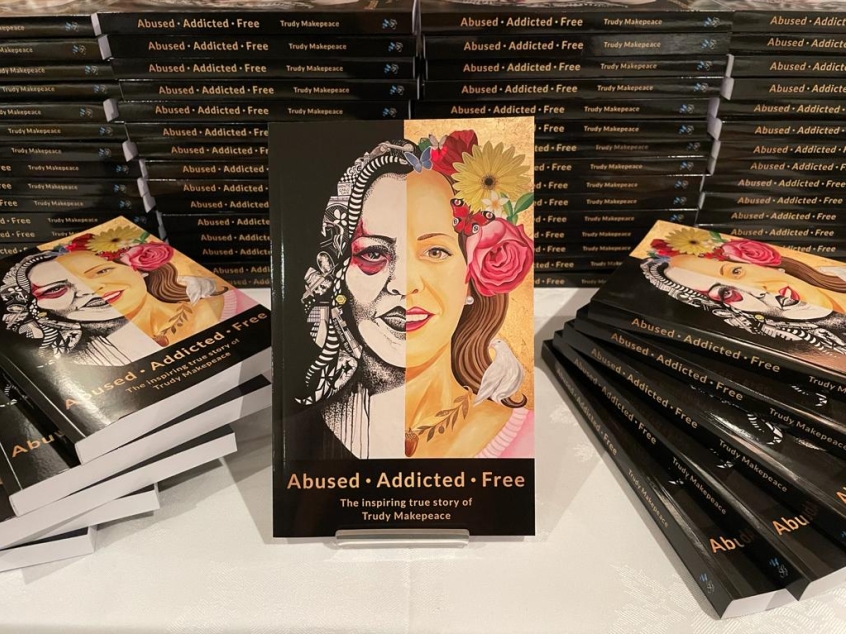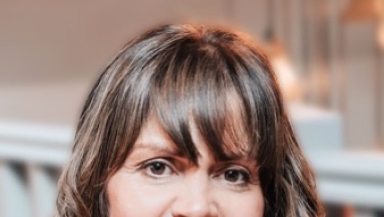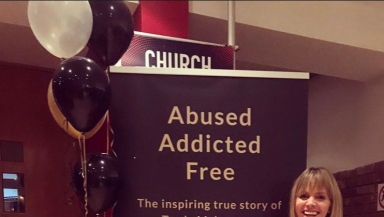
Trudy Makepeace was a mess until she met Jesus, having experienced a painful childhood under the shadow of abuse, only to grow up and spend years as an adult trapped in a destructive cycle of drug abuse, prostitution, homelessness and prison. But the evangelist and outreach worker says that God has now turned her mess "into a message of hope", and it's one she shares in her new book Abused, Addicted, Free.
Trudy speaks to Christian Today about her book and how she was finally able to break free after giving her life to Jesus.
CT: How would you sum up your life before coming to faith?
Trudy: My life was chaotic, I was a mess, hopeless and helpless to change. When I look back on how I got there I think I'd just been running from myself my whole life, from the pain of my childhood, from myself, from the emotional trauma. I blamed myself for the abuse and loathed myself, which then led to shame and brokenness and a lot of wrong thinking and subsequent decisions and poor choices. And I think because of those childhood experiences, I was not equipped to make good choices. My choices were based either on survival or escapism, and that then led in to choosing to take drugs.
CT: You tried 33 times to get clean and it didn't work. Why do you think that was?
Trudy: At that time I was weak and I lacked discipline and purpose, as well as the life skills and tools to make good decisions. What's more I did not value myself and battled with many internal struggles. I found I could get clean or go into rehab for a short while. For example: you could remove me from the situation and I'd clean up; you could take me out of the area. But it was not just a change of area I needed but a change of heart and a different perspective as I always went straight back to using,
You see, it seemed that every time I tried to get clean I then fell again, and each time it seemed harder and harder. There comes a point where you give up on yourself, maybe not consciously, but you know you've messed up again or failed again. So although I did always believe that one day I'd be able to fix me, I just couldn't sustain it.
And of course, now I know that there was also a spiritual dynamic that was at work - the more you give yourself over to drugs the more you become enslaved. There is also the physical habit that you form and then have to break, and you need to be in a healthy environment to help you to do that. Some of the battles are in the heart, they involve emotional wounds, battles in the mind and there is this whole emotional and spiritual side that needs healing - how you see yourself and the world, how you view things.
I was dealing with a lot of oppression and deception because when you go through a lot of trauma I think that opens the door to spiritual influences and lies that keep you in bondage. What's more the Bible tells us that when we worship false idols, they enslave us. That was certainly my experience as I worshipped drugs and I lived day and night for nothing else, reaching the point that my addiction possessed me.
CT: What was the turning point for you?
Trudy: For me, the major turning point was coming to faith. Before then, if you'd told me about the Lord Jesus I would have said 'good for you, but I'm not interested'. Because I was living in the dark and was enjoying it. It becomes less and less enjoyable but there is a part of you that wants to still do what you want to do, and it's almost like you're still enjoying it even when it's not enjoyable anymore if that makes sense. My life was in tatters. I was living on the streets and in squats but the desire and appetite to use was strong and still there because when you're addicted you lose all rationale, the brain changes, you register pleasure differently.

CT: How was it that you actually came to faith?
Trudy: I entered a Christian rehab and from there was taken to a Christian meeting in Cardiff where Reinhard Bonnke was preaching. I remember listening to him preach about how God loved me and died to forgive me, he went on to say I could have a fresh start. No one needed to tell me I was a sinner, I knew I was, so I responded to the invitation to go forward to receive Jesus as my saviour and as I did I felt the power of God go through me and knew that I was experiencing God's presence.
CT: Were there still some struggles after this?
Trudy: Yes when I went back to the rehab, although I knew my life was different, after a few weeks I got a little payout and the temptation to go back to the streets and back to drugs was so strong so I ran off and returned to the streets and within a month I was back in prison.
I think that when you are in that kind of mess and then get saved, it can take a while for you to catch up with what is going on. It was like I was spiritually awake but my mind and soul were so embedded in the old life, that it took being in prison again to really grasp the change that had happened.
The court sent me back to the same rehab for six months to give me a chance to prove myself before sentencing me and it was there in those first couple of months that I read The Father's Love Letter and it was like I went from being saved to having this profound revelation of God as my Father, which just took me to another level as I embraced his love and offer of relationship.
When I asked Jesus into my life the second time, I really meant it with my whole heart. I really understood that I had reached the end of myself and that I couldn't fix me. I had always believed I could fix me but now I knew I had nothing left and nowhere else to go. I completely surrendered and accepted him as Lord. And that's when the biggest miracle happened for me.
I think up until then in the rehab I still had the mindset of an addict, I was still itching for my valium. But here in this moment after I prayed that prayer, I felt the desire go. I felt the heavy load lift off my back, like the guilt, the shame had been lifted. And I knew I didn't deserve that yet God just lifted it from me. And I remember the room being filled with love and peace and feeling like I'd had a bath on the inside. I felt clean, loved and accepted.
So for me, there was the day I gave my life to the Lord and was born again. But then there was the second encounter which was much more intimate and personal and where I was actually choosing to follow and walk with him. That was the thing that changed everything and proved to be the doorway into a new life.
CT: Were you ever tempted to use drugs again?
Trudy: The biggest miracle is that since that encounter I have never had the desire to use. Even to this day, 15 years on, I've never desired to pick up a needle or a crack pipe. He just took that desire away.
CT: Some former addicts speak about overcoming shame as part of their healing journey. Is that something you have experienced too?
Trudy: A lot of the shame I felt from the working and using was removed immediately but what I have encountered over the years is the layers in the healing journey. More recently, Christ has been doing a deeper work in me and revealed some of the belief systems that I've held onto that have been rooted in shame. I realised I was operating in a shame-fear cycle - believing that if people really knew me that they would not accept me. So, a fear of rejection which I'd learnt from childhood would still be at the root of some self-protective responses and behaviours. I thought that if I did everything perfectly, nobody could criticise or reject me but if they knew who I really was then they would. So there have been some deep-rooted beliefs and shame-based ways of operating that I have had to work through.

CT: How do you think the Church can support people who have walked a similar path to yours?
Trudy: Everyone is in recovery from something, whether it's sugar, work, alcoholism... So it's about educating ourselves about addiction, about wholeness and not just judging addicts based on the externals. Some churches are going to have people in their midst who have been through what I've been through and who will be able to help others. For other churches, this might be a problem on their doorstep, in which case they can't ignore it and will need to address it and put things in place to journey with them and help. And obviously churches aren't all going to be able to do the same thing; it depends on our capacity and who we have in our churches that will take up this call to minister and help those who are struggling in this particular area.. But we all have a responsibility to educate ourselves about the issues affecting the people in our midst, and build relationships with them and journey with them.
CT: What would you say to someone who is in the same negative cycle you experienced right now, where they feel like there's no hope for them because they've tried so many times to get out of that spiral and failed.
Trudy: I would always want to point that person to the Lord and tell them of what Christ can do for them. And I would want to speak life, hope and encouragement over that person because there is always hope, no matter where they are at now or how many times they have failed.
And I would encourage them to connect with a community or somebody who can journey alongside them and walk with them, whether that's believers in recovery or a group where people are going through the same thing. I was fortunate enough to go into rehab and I would encourage this where appropriate because sometimes we need things cut off or removed from us to enable us to get stronger, and rehab is one place that can do that.
But whichever way, I would tell them to connect with someone they can walk with and who will strengthen and encourage them. Let them know it's never over, that they just need to keep putting one foot in front of the other and trust that Jesus will give them the strength and ability that they don't have in themselves, and that He will walk on this journey with them and lead them into freedom piece by piece and step by step.
I'm grateful that in my own life, even though I wasn't always willing to listen, there were people who kept calling me higher. We don't always see it in the moment but later on we can look back and thank God for those people.













